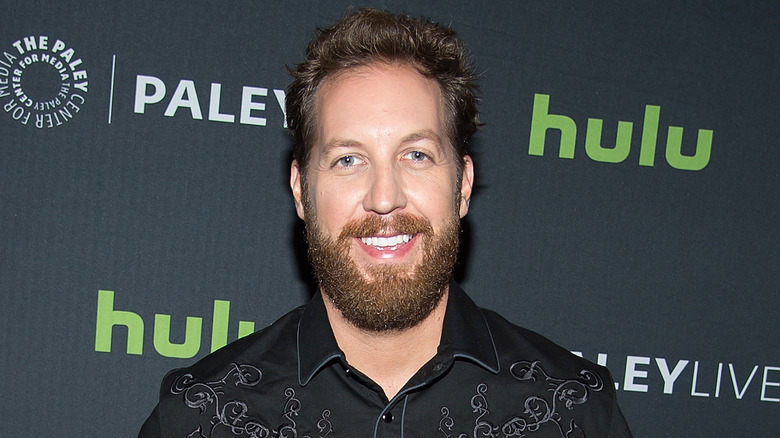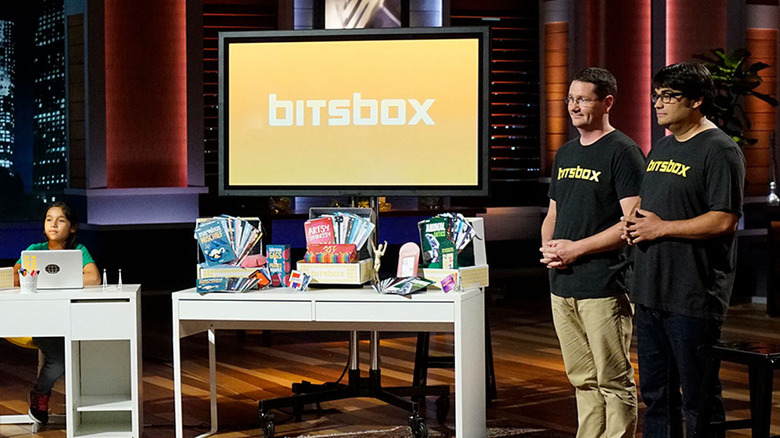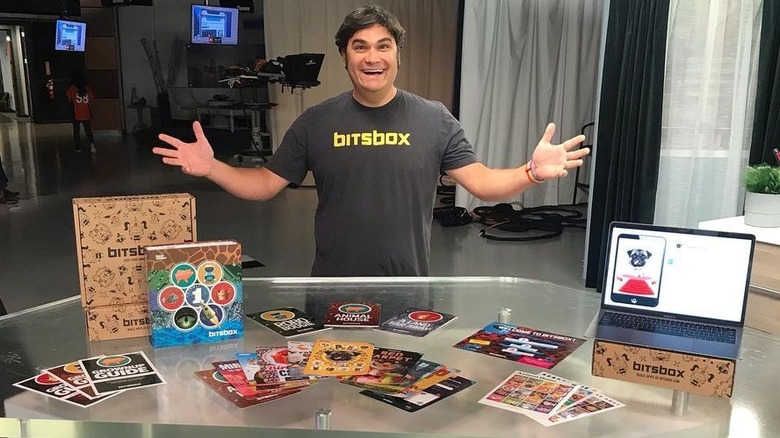The Truth About What Happened To Bitsbox After Appearing On Shark Tank
Children are the future, and coding subscription company Bitsbox pitched itself to the "Shark Tank" investors in Season 8 hoping to reel in money to help educate the youth on the fundamental computer skill. A tense negotiation had the potential to halt the company's momentum, so how has Bitsbox fared since its dive into the tank?
Before creating Bitsbox, founders Scott Lininger and Aidan Chopra were coworkers at one of the biggest technology companies in the world, Google. Searching for an engaging way to teach the next generation about coding, Lininger designed a prototype of a box that contained kid-friendly coding instruction cards for his 7-year-old daughter. The test was a success and Lininger and Chopra quit their positions at Google to launch Bitsbox in 2014. The company sends its monthly subscribers one Bitsbox per month, allowing kids from ages 6 to 14 to build and play their own mobile apps.
This sounds like the exact kind of innovative tech company that the "Shark Tank" judges would jump to make a deal with, but expectations took a turn when the Bitsbox team entered the arena.
Bitsbox's negotiation with guest investor Chris Sacca fell apart
Bitsbox founders Scott Lininger and Aidan Chopra learned that when you come into the "Shark Tank," there's a chance of getting bit. In the 2017 episode, the pair initially sought $250,000 for 3% equity in their company. Their pitch featured an actual user, 10-year-old Grace, who demonstrated the code for building a "Shark Tank" app. The founders explained Bitsbox earned $1.3 million in revenue in its first two years of operation. Even though the company had not yet made a profit, Chopra and Lininger emphasized to the panel how their $20-$40 per month subscription helped children gain a vital skill in today's digital age.
"Coding is a golden ticket to a great job and a great future," Chopra highlighted in the episode. "And the best thing is that anybody can learn."
After the other Sharks dropped out of the deal due to lack of experience or competition in the coding market , the only panelist to give Bitsbox an offer was Season 8 guest investor, billionaire Chris Sacca. When Sacca made an offer valuing the company for $3 million less than the owners initially stated, Lininger and Chopra revealed they were hesitant to dilute the value of their other investors. The three tried to negotiate, but Sacca became offended by what he described as "nickel-and-diming" the deal, so he tanked the offer. Bitsbox left with no investment from the sharks — but they did have millions of new eyeballs on them.
Bitsbox earned investment elsewhere and made lemons out of lemonade
Although they exited "Shark Tank" empty-handed, Bitsbox has expanded its curriculum and business as a whole. When the episode aired on ABC in 2017, founder Aidan Chopra published a post on Bitbox's blog about their experience filming on-set of the television show. He pointed out how investor Chris Sacca "surprised [them] (and millions of others) by acting offended and withdrawing his offer" after the Bitsbox team tried to make a counteroffer. But it's all water off a duck's back because Chopra reported that the company's exposure to the public "more than tripled" its consumer base and earned them spots in the media for children's coding education programs.
"Not only did we end up raising the money we needed from non-celebrity investors, but the TV exposure gave us a boost that was bigger than we'd dared to dream," Chopra wrote. "Our team has grown from five to eight ... and we've doubled our office space—we're setting up a video studio, of all things. Things have never looked better for Bitsbox."
According to the company's website, more than one million children across 70 countries have utilized the Bitsbox education system. Their business has also expanded to targeting schools with education kits as well as selling a homeschool curriculum. Although Chopra wrote that it was difficult to go through the process of "Shark Tank," he ensured that it was all worth it in the end. "Was it fun to be on TV? Not really. Would we do it again? In a heartbeat."



